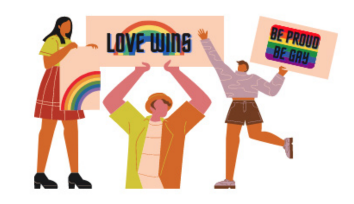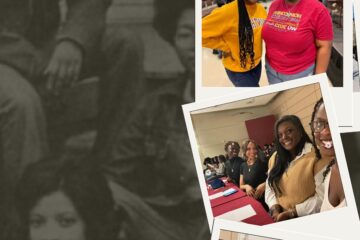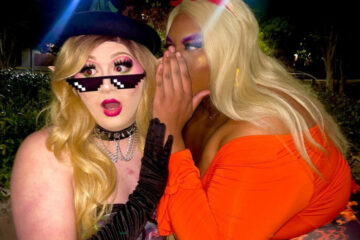For a country that was founded on the idea of freedom and equality for all, America’s history has been littered with civil rights movements for many marginalized groups. Although great strides have been made in the last several centuries towards ensuring true equality for all, there are many who still have to struggle just to gain the same basic rights as their neighbors. And during this month of LGBTQ+ history, who better to commemorate than members of the LGBTQ+ community, who
have been working to secure their rights for nearly half a century.
In fact, Oct. 14 marks the 41st anniversary of the 1979 March on Washington for Lesbian and Gay Rights, which drew between 75,000 and 125,000 gay, lesbian, bisexual, transgender and queer people and straight allies to the national capital. This event had been long in the making, having been initially proposed in 1973. Speakers included Harry Britt, Allen Ginsberg, Audre Lorde, first PFLAG President Adele Starr and Congressman Ted Weiss.
According to an article written the day after the event for the New York Times, the demonstrators at this movement called for “legislation to amend the Civil Rights Act of 1964 to protect homosexuals against discrimination. They also have urged that President Jimmy Carter sign an executive order banning discrimination in the military, civil service and among Government contractors.”
Other demands, which were drafted by Joe Smenyak, included repealing all anti-lesbian/gay laws, protecting lesbian and gay youth from any laws that could be used to discriminate against, oppress or harass them and passing a comprehensive lesbian/gay rights bill in Congress.
However, this demonstration was met with much backlash from conservative groups.
According to the same article, during the demonstration, “a coalition of ministers met on Capitol Hill to organize a National Day of Prayer on Homosexuality to ask God ‘to deliver them from their lives of perversion.’”
On Oct. 5, two Supreme Court justices attacked the case Obergefell v. Hodges, which legitimized national marriage equality in 2015. According to an article written for LGBTQ Nation, Justice Clarence Thomas wrote that the case was “unconstitutional because it ‘bypassed’ the ‘democratic process’ and cause people ‘with sincerely held religious beliefs concerning marriage’ to ‘find it increasingly difficult to participate in society.’”
Justice Thomas was joined in his opinion by Justice Samuel Alito. With the loss of Justice Ruth Bader Ginsberg and President Trump’s conservative nominee, the Supreme Court may find itself upholding these far-right ideals. But, in the words of Betty Santoro, a keynote speaker at the March on Washington for Lesbian and Gay Rights, the LGBTQ+ community refuses “to allow this kind of suffering to continue. Our message is they need not be alone, not ever again.” And they are making
progress.
In today’s culture, more and more LGBTQ+ representation is appearing in the media. Delaney Church, a freshman biology major at Winthrop who identifies as a member of the LGBTQ+ community, explained that such representation is so important for younger generations because “They deserve to grow up in a world where everyone is accepted so they don’t have to go through the things the people did in the 1970s.”
She also said that only by taking action can we solve the issues that the LGBTQ+ community faces — that “If you don’t fight with us, then you’re as bad as the oppressors.”
Lorde, another speaker at the March on Washington for Lesbian and Gay Rights, said in her speech, “What kind of a world do we want to be a part of?”
Graphic by Katelyn Miller




